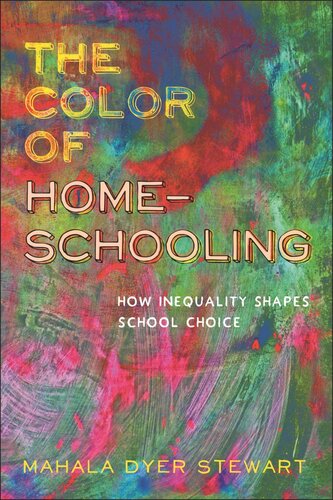

Most ebook files are in PDF format, so you can easily read them using various software such as Foxit Reader or directly on the Google Chrome browser.
Some ebook files are released by publishers in other formats such as .awz, .mobi, .epub, .fb2, etc. You may need to install specific software to read these formats on mobile/PC, such as Calibre.
Please read the tutorial at this link: https://ebookbell.com/faq
We offer FREE conversion to the popular formats you request; however, this may take some time. Therefore, right after payment, please email us, and we will try to provide the service as quickly as possible.
For some exceptional file formats or broken links (if any), please refrain from opening any disputes. Instead, email us first, and we will try to assist within a maximum of 6 hours.
EbookBell Team

4.8
44 reviewsHow race and racism shape middle-class families’ decisions to homeschool their children
While families of color make up 41 percent of homeschoolers in America, little is known about the racial dimensions of this alternate form of education. In The Color of Homeschooling, Mahala Dyer Stewart explores why this percentage has grown exponentially in the past twenty years, and reveals how families’ schooling decisions are heavily shaped by race, class, and gender.
Drawing from almost a hundred interviews with Black and white middle-class homeschooling and nonhomeschooling families, Stewart’s findings contradict many commonly held beliefs about the rationales for homeschooling. Rather than choosing to homeschool based on religious or political beliefs, many middle-class Black mothers explain their schooling choices as motivated by their concerns of racial discrimination in public schools and the school-to-prison pipeline. Indeed, these mothers often voiced concerns that their children would be mistreated by teachers, administrators, or students on account of their race, or that they would be excessively surveilled and policed. Conversely, middle-class white mothers had the privilege of not having to consider race in their decision-making process, opting for homeschooling because of concerns that traditional schools would not adequately cater to their child's behavioral or academic needs. While appearing nonracial, these same decisions often contributed to racial segregation.
The Color of Homeschooling is a timely and much-needed study on how homeschooling serves as a canary in the coal mine, highlighting the perils of school choice policies for reproducing, rather than correcting, long-standing race, class, and gender inequalities in America.